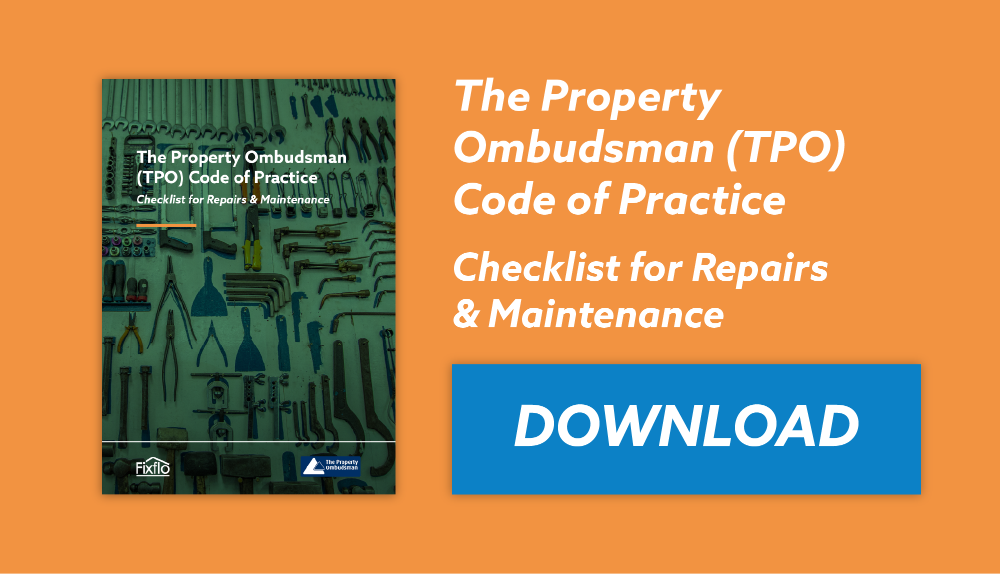In the wake of the enactment of the Tenant Fees Act 2019, The Property Ombudsman (TPO) has made a number of changes to its Code of Practice, many of which concern best practice around the repairs and maintenance of a property. Given that the handling of repairs and maintenance is a major pain point for tenants and landlords, the changes can only be a good thing – but there are a lot of them to keep track of.
Are the changes compulsory?
Agents are not legally obliged to adhere to TPO (unless they are a registered member of ARLA and Propertymark). But they are legally required to be a member of a property redress scheme and there’s a fine of £5,000 at stake for those who do not comply. If you want to access TPO’s property redress scheme (one of two government-approved schemes), complying with all of the latest updates to TPO is vital.
How do these changes affect repairs and maintenance?
The changes to TPO’s Code of Practice have tightened up three main parts of the repairs and maintenance process, with a number of stipulations regarding each.
Repairs reporting – recognising that when repairs happen immediate fixes are often required, TPO updates require agents to provide a 24/7 repairs and maintenance reporting service and out of hours services for emergency repairs. In addition to other stipulations regarding communication, they also ask that tenants who don’t have English as a first language (an estimated 2% of the population) are accommodated and communicated within a way they understand.
Access – Tenants must now be given 24 hours’ notice when accessing the property is required for a contractor to proceed with a repair request. They also need to be given the opportunity to be present during the visitation. Written records of the communication and visit must also be kept. In order to ensure they’re complying with the new rules, agents should ask themselves whether they have a visiting schedule in place for their properties, whether they have a procedure for informing tenants of a visit, how they make it clear to tenants if an unaccompanied third party (like a contractor) needs access and if they have the system in place for making and storing written records.
Conduct and communication – communication (which has been partly covered in the repairs reporting section) remains one of the most important aspects of the agent-tenant relationship and TPO’s updates enshrine the need to keep the channels of communication open. It is now a requirement to give your tenants the means to communicate with you in case of any questions around their rights or their tenancy. In addition to recognising non-English speakers, allowances must also be made for tenants with additional needs. The storing of this information has also become a focal point. GDPR regulations now demand that all tenant information must be stored safely and securely (for the stipulated period). Tenants must also be able to view their own data on request without undue delay.
These changes are just the tip of the iceberg. We've compiled a handy checklist, detailing everything agents need to consider in order to become compliant. It covers everything from transparency to trade licences.
Click here to download The Property Ombudsman (TPO) Checklist for Repairs & Maintenance. If you're interested in an in-depth guide to the TPO changes and their impact on lettings agents, download this free guide: The Property Ombudsman (TPO) Code of Practice - Changes for Letting Agents.

BLOG DISCLAIMER
This article is intended for information purposes only and does not constitute legal advice. If you have any questions related to issues in this article, we strongly advise contacting a legal professional.
These blog posts are the work of Fixflo and are licensed under a Creative Commons Attribution-ShareAlike 3.0 Unported License. In summary, you are welcome to re-publish any of these blog posts but are asked to attribute Fixflo with an appropriate link to www.fixflo.com. Access to this blog is allowed only subject to the acceptance of these terms.

